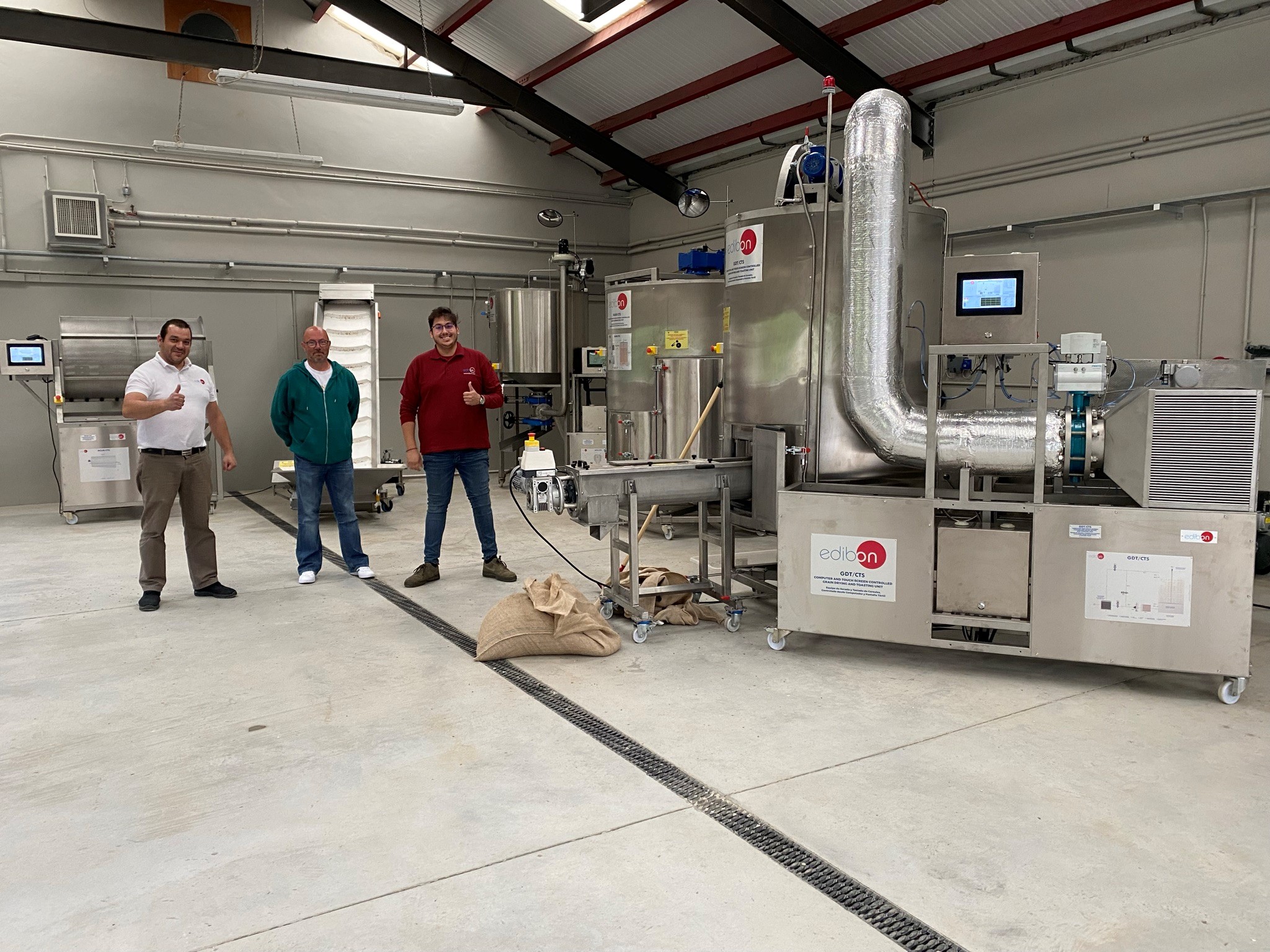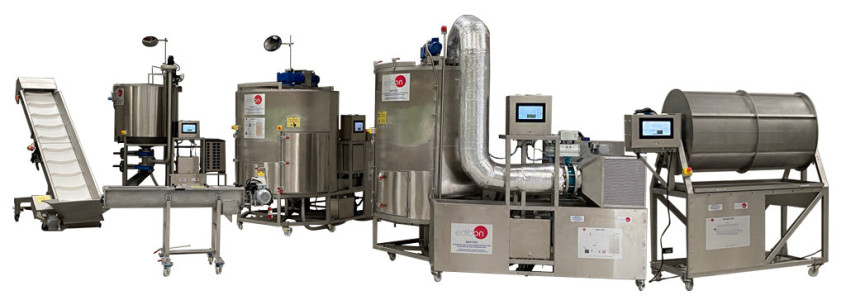- Beranda
- Produk
- 1.- FISIKA
- PROGRAM AKADEMIK
- PENDIDIKAN TEKNIS TINGGI
- TEKNIK MAKANAN
- TEKNIK TOPOGRAFI
- GEOLOGI
- TEKNIK HUTAN
- TEKNIK LINGKUNGAN
- TEKNIK EKOLOGI
- TEKNIK TEKSTIL
- TEKNIK UNTUK INDUSTRI PERTANIAN
- TEKNIK MESIN
- KIMIA
- TEKNIK KIMIA
- TEKNIK PROSES
- TEKNIK GEOLOGI, PERTAMBANGAN DAN MINYAK
- PUSAT PELATIHAN PETROLEUM
- TEKNIK NAVAL
- TEKNIK PERTANIAN
- TEKNIK ELEKTRONIK
- ARSITEKTUR
- ILMU KOMPUTER DAN TEKNIK
- TEKNIK NUKLIR
- TEKNIK OTOMATIS
- TEKNIK ENERGETIK
- PUSAT PELATIHAN ENERGI
- TEKNIK LISTRIK
- TEKNIK SISTEM
- TEKNIK PENERBANGAN
- TEKNIK LAUT DAN ILMU LAUT
- FISIKA
- TEKNIK INDUSTRI
- PUSAT INTERNASIONAL UNTUK PELATIHAN TEKNIS, PENGEMBANGAN DAN PENELITIAN
- TEKNIK BAHAN
- TEKNIK LOGAM
- TEKNIK SIPIL
- TEKNIK TELEKOMUNIKASI
- TEKNIK TERMAL
- SEKOLAH TEKNIS
- ELEKTRONIK
- KOMUNIKASI
- LISTRIK
- ILMU KOMPUTER DAN TEKNIK
- TEKNOLOGI OTOMOTIF
- TEKNIK SIPIL
- MEKANIK DAN INDUSTRI
- MEKANIK DAN LOGAM
- MEKANIKA CAIRAN
- REFRIGERASI DAN AC
- KIMIA INDUSTRI
- KIMIA
- TEKNOLOGI MAKANAN
- PERTANIAN
- AGROINDUSTRI
- PEMELIHARAAN
- MARITIM DAN PERIKANAN
- PERAWATAN PENERBANGAN
- INSTRUMENTASI DAN KONTROL
- LINGKUNGAN
- TEKNOLOGI
- TEKNOLOGI KONSTRUKSI
- TEKNOLOGI ELEKTROMEKANIK
- TEKNOLOGI DESAIN STRUKTURAL
- TEKNOLOGI PRODUKSI INDUSTRI
- TEKNOLOGI INFORMASI
- PENGENDALIAN KUALITAS
- TEKNOLOGI SISTEM ENERGI
- TEKNOLOGI PERTAMBANGAN DAN MINYAK BUMI
- TEKNOLOGI GAS ALAM
- ENERGI TERBARUKAN
- TEKNOLOGI TELEKOMUNIKASI
- TEKNOLOGI MEKANIK
- TEKNOLOGI ANGIN
- TEKNOLOGI NUKLIR
- TEKNOLOGI KONTROL PROSES
- TEKNOLOGI LAYANAN UMUM
- TEKNOLOGI LABORATORIUM
- OTOMATISASI DAN MEKATRONIKA
- TRANSPORTASI DAN LOGISTIK
- PENDIDIKAN TEKNIS TINGGI
- 2.- ELEKTRONIKA
- 3.- KOMUNIKASI
- 4.- LISTRIK
- 5.- ENERGI
- 5.1.- GRID CERDAS DAN SISTEM DAYA
- 5.2.- MIKROGRID
- 5.3.- ENERGI TERBARUKAN
- 5.3.1.- ENERGI SURYA FOTOVOLTAIK
- 5.3.2.- ENERGI TERMAL SURYA
- 5.3.3.- ENERGI ANGIN
- 5.3.4.- ENERGI LAUT
- 5.3.5.- ENERGI GEOTHERMAL
- 5.3.6.- ENERGI HIDROLIK
- 5.3.7.- BIOFUEL
- 5.3.8.- SISTEM AKUMULASI ENERGI
- 5.3.9.- SEL BAHAN BAKAR HYDROGEN
- 5.3.10.- TURBIN STEAM DAN SIKLUS RANKINE ORGANIK
- 5.3.11.- SISTEM NON-KONVENSIONAL LAINNYA
- 5.4.- ENERGI KONVENSIONAL
- 5.5.- PENYIMPANAN ENERGI
- 5.6.- TEGANGAN TINGGI DAN SISTEM PERLINDUNGAN LISTRIK
- 5.7.- PEMASANGAN DAN PEMELIHARAAN
- 6.- MEKATRONIK & OTOMASI
- 7.- MEKANIKA
- 8.- MEKANIKA FLUIDA
- 9.- TERMODINAMIK DAN TERMOTEKNIK
- 10.- PENGENDALIAN PROSES
- 11.- TEKNIK KIMIA
- 11.1.- OPERASI UNIT
- 11.1.1.- FLUIDIZATION
- 11.1.2.- PENGUAPAN
- 11.1.3.- MENDIDIH
- 11.1.4.- DISTILASI DAN RETAK
- 11.1.5.- EKSTRAKSI
- 11.1.6.- DIFUSI
- 11.1.7.- PENGERINGAN DAN PENDINGINAN
- 11.1.8.- PENYERAPAN DAN ADSORPSI
- 11.1.9.- PERTUKARAN ION DAN KOROSI
- 11.1.10.- KRISTALISASI DAN PIROLISIS
- 11.1.11.- FILTRASI, SEDIMENTASI, DAN PENCAMPURAN
- 11.1.12.- PENGOBATAN SOLIDS
- 11.2.- REAKTOR KIMIA
- 11.1.- OPERASI UNIT
- 12.- TEKNOLOGI PANGAN & AIR
- 13.- LINGKUNGAN HIDUP
- 14.- TEKNIK BIOMEDIS
- AKSESORIS LABORATORIUM
- PABRIK PILOT SESUAI PESANAN
- MODUL
- EKSPANSI
- LABORATORIUM
- Garis Bisnis
- Teknologi
- Unduh
- Tentang kami
- Berita
- KONTAK
Innovation and Sustainability in Food Production: The Role of Pilot Plants in Food Engineering
Global Challenges in Food Production
Food scarcity has become a global concern due to factors such as climate change, soil degradation, decreasing water resources, and the increasing demand for agricultural products. These challenges underscore the need to research and develop new technologies that not only improve the efficiency of food production but also minimize waste and ensure the quality and safety of products.The Need for Research in Food Processes
Research in food engineering is vital for developing innovative solutions that address the challenges of food production and distribution. Pilot plants are fundamental in this process, as they allow researchers and professionals to experiment with and optimize new methods and technologies in a controlled environment before large-scale implementation. These facilities are essential for simulating real production conditions, providing valuable data for process optimization and the formulation of effective solutions.
Why Are Pilot Plants Useful?
Pilot plants allow researchers to simulate and study real production conditions in a controlled environment. This is particularly useful for identifying and solving problems before large-scale implementation, reducing risks and costs. Additionally, they provide a platform to test and refine new technologies and methods, ensuring they are efficient and effective before industrial use.
What Can Be Investigated?
Our pilot plants enable the investigation of a wide range of food processes, from production to packaging and storage. This versatility allows researchers to adapt systems to various needs and study objectives.
- Versatility: Designed to study a wide range of food processes, from production to packaging and storage.
- Scalability: Results obtained in these facilities can be easily transferred to industrial levels, facilitating the implementation of improvements in the food production chain.
- Energy Efficiency: Equipped with state-of-the-art technologies that minimize energy consumption and reduce environmental impact.
- Control and Monitoring: Advanced control and monitoring systems that allow continuous and precise tracking of process variables, ensuring the quality and safety of products.
Examples of Applications Already Developed:
Here are some areas where our pilot plants have proven to be particularly useful:
- Dairy: From yogurt and pasteurized milk to powdered milk, cream, butter, cheese, and cottage cheese. Our advanced pilot plants and high-tech solutions ensure precise and efficient production, crucial for meeting the quality and demand challenges in the dairy sector.
- Meat: Research and training processes in cured meats, sausages, cooked cuts, and pre-cooked meats. With our pilot plants, production processes are thoroughly monitored, ensuring precision and efficiency in meat production.
- Cereals: Cutting-edge solutions for cereal research and training. From milling and flour production to bread, pasta making, and grain malting. Pilot plants ensure precise and efficient production, vital for maintaining quality and meeting industry standards.
- Oils: Innovative solutions for oil research and training. We cover everything from extraction and refining to blending and packaging. Our cutting-edge technology ensures precise and efficient production.
- Fruits, Vegetables, and Legumes: Processing of purees, fruit pulps, essences, concentrated juices, dressings, sauces, jams, and more. Specialized systems for citrus and tomato products ensure efficient and precise production, meeting quality and sustainability demands.

Case Study: Pilot Plant for Cereal Malting, “CE00/MA” for TEAGASC (Ireland)
One of our most notable collaborations is the CE00/MA pilot plant developed for TEAGASC, the Agriculture and Food Development Authority of Ireland. This facility is an example of how engineering can drive food research. Its main features include:
- Versatility: Allows the study of different food processes.
- Scalability: Facilitates the implementation of improvements at the industrial level.
- Energy Efficiency: Minimizes energy consumption and reduces environmental impact.
- Control and Monitoring: State-of-the-art equipment ensures precise process control.
Thanks to this pilot plant, researchers can replicate the malting process under a wide variety of conditions. This allows local producers to test their products and optimize their processes, ensuring production quality and efficiency. The ability to simulate and adjust different parameters in a controlled environment provides valuable data that can be applied on an industrial scale, improving producers' competitiveness and sustainability.
Conclusion
Food engineering is essential to address the challenges associated with food scarcity and the growing global population. At EDIBON, we are committed to developing pilot plants and customized solutions that facilitate the research and optimization of food processes. Our collaboration with institutions demonstrates the positive impact these technologies can have on the food industry, contributing to a more sustainable and secure future.
For more information about our pilot plants and customized solutions, contact us.
"Together, we can innovate and transform the way we produce and distribute food globally."
 Preferensi cookie
Preferensi cookie

